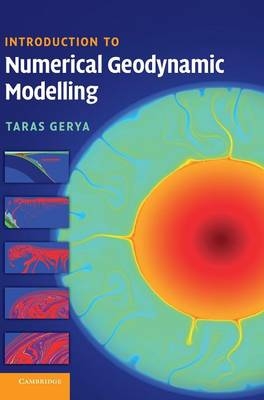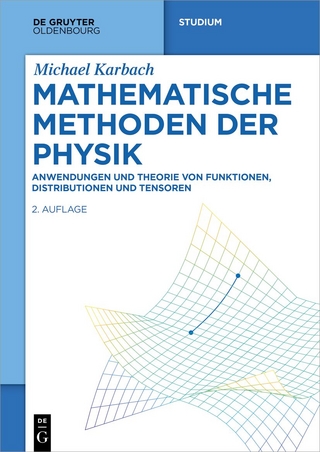
Introduction to Numerical Geodynamic Modelling
Cambridge University Press (Verlag)
978-0-521-88754-0 (ISBN)
Numerical modelling of geodynamic processes was predominantly the domain of high-level mathematicians experienced in numerical and computational techniques. Now, for the first time, students and new researchers in the Earth Sciences can learn the basic theory and applications from a single, accessible reference text. Assuming only minimal prerequisite mathematical training (simple linear algebra and derivatives) the author provides a solid grounding in basic mathematical theory and techniques, including continuum mechanics and partial differential equations, before introducing key numerical and modelling methods. 8 well-documented, state-of–the-art visco-elasto-plastic, 2-D models are then presented, which allow robust modelling of key dynamic processes such as subduction, lithospheric extension, collision, slab break-off, intrusion emplacement, mantle convection and planetary core formation. Incorporating 47 practical exercises and 67 MATLAB examples (for which codes are available online at www.cambridge.org/gerya), this textbook provides a user-friendly introduction for graduate courses or self-study, encouraging readers to experiment with geodynamic models.
Taras Gerya was awarded a Ph.D. in 1990 from the Moscow State University and went on to become a Senior Researcher and Head of the Laboratory of Metamorphism at the Institute of Experimental Mineralogy, Russian Academy of Sciences, Moscow. He was awarded a Habilitation in petrology before moving to the Ruhr University of Bochum, Germany in 2000 as an Alexander von Humboldt Foundation Research Fellow. In 2004 he took up a position as Senior Research Scientist in the Department of Earth Sciences at ETH-Zurich, Switzerland, while continuing to be an Adjunct Professor in the Geology Department of Moscow State University. He was awarded a Habilitation in numerical geodynamic modelling by ETH-Zurich in 2008 and the Golden Owl Prize 2008 from ETH students for teaching of continuum mechanics and numerical geodynamic modelling. Dr Gerya is the author of over 50 papers on geodynamic modelling in leading peer-review journals.
Acknowledgements; Introduction; 1. The continuity equation; 2. Density and gravity; 3. Numerical solutions of partial differential equations; 4. Stress and strain; 5. The momentum equation; 6. Viscous rheology of rocks; 7. Numerical solutions of the momentum and continuity equations; 8. The advection equation and marker-in-cell method; 9. The heat conservation equation; 10. Numerical solution of the heat conservation equation; 11. 2-D thermomechanical code structure; 12. Elasticity and plasticity; 13. 2-D implementation of visco-elastic-plastic rheology; 14. The multi-grid method; 15. Programming of 3-D problems; 16. Numerical benchmarks; 17. Design of 2-D numerical geodynamic models; Epilogue: outlook; Appendix: MATLAB program examples; References; Index.
| Erscheint lt. Verlag | 17.12.2009 |
|---|---|
| Zusatzinfo | Worked examples or Exercises; 5 Tables, unspecified; 45 Halftones, unspecified; 93 Line drawings, unspecified |
| Verlagsort | Cambridge |
| Sprache | englisch |
| Maße | 180 x 254 mm |
| Gewicht | 860 g |
| Themenwelt | Mathematik / Informatik ► Mathematik ► Angewandte Mathematik |
| Naturwissenschaften ► Geowissenschaften ► Allgemeines / Lexika | |
| Naturwissenschaften ► Geowissenschaften ► Geografie / Kartografie | |
| Naturwissenschaften ► Geowissenschaften ► Geologie | |
| Naturwissenschaften ► Geowissenschaften ► Geophysik | |
| Naturwissenschaften ► Physik / Astronomie | |
| ISBN-10 | 0-521-88754-2 / 0521887542 |
| ISBN-13 | 978-0-521-88754-0 / 9780521887540 |
| Zustand | Neuware |
| Haben Sie eine Frage zum Produkt? |
aus dem Bereich



